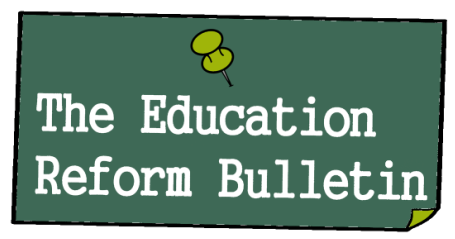So, what are vouchers, and why do Democrats oppose them? Vouchers take all or part of the tax funding for a child and give it to parents, enabling them to send their child to the private or public school of their choosing. Democrats have opposed vouchers because they argue that it takes money away from the public school system and sends it to private schools, creating inequity among the children left in the public school system, and when those dollars go to religious schools it is a violation of the Constitution. These are reasonable concerns, but given a closer look at how vouchers work, they may be unfounded.
Yes, vouchers do transfer money from public schools to private schools, but that does not necessarily mean that the public schools are losing money for the rest of the students who stay in the public school system. For example, the Douglas County Schools Choice Scholarship program (currently on hold due to a lawsuit, which is in the appeals process – see more here) in Douglas County, Colo. gives parents up to 75 percent of per-pupil revenue or the cost of tuition, whichever is less. Were the program successfully implemented, Douglas County Schools would have an extra 25 percent of available funds from a child they aren't educating to spend on those children they are educating. This would actually add money to the public schools, not take it away.
Democrats also worry that by allowing parents to apply the voucher to private schools opens the door to issues of constitutionality, when that private school is affiliated with a religious institution. However, once the money is given to the parents, they are free to choose how it is spent – the parents are making the choice, not the government, so it does not violate the separation of church and state. Additionally, if you reject all vouchers simply because some parents might choose a religious school, you are keeping other parents from having the opportunity to send their children to non-religious private schools – especially those children who desperately need to get out of failing public schools.
This brings us to the final Democrat critique of vouchers, which is that they create inequity among those who have the chance to go to private schools and those who do not. In actuality, vouchers create opportunity for children to receive a better education and an education that better suits his/her individual needs. As mentioned above, the D.C. Public Schools voucher program has allowed African-American students from low-income families attending failing schools to now attend the best private schools in the city. Vouchers can also help special needs children to attend private schools that can better provide the individualized education these children need. Children who remain in the public school system will also benefit from vouchers not only because in some cases they can provide additional funds, but they also create competition among all types of schools. Competition forces schools to improve, or lose students, so schools will have to be great or risk closing their doors.
It is on the issue of opportunity that many Democrats are beginning to change their opinions on vouchers – so long as they are narrowly defined to help low-income children in failing schools and special needs children. A recent article by Education Week (read full text here) noted that Michelle Rhee, the former chancellor of D.C. Public Schools and a Democrat, began to change her opinion “upon meeting parents who have tried and failed to secure coveted spots for their children in the system’s highest-performing public schools through no fault of their own.” Ms. Rhee continued, “vouchers for impoverished students in academically struggling schools make sense.”
Education Week also discussed the growing support among local and state Democrat leaders who represent mainly African-American districts that have large numbers of low-performing public schools. The article highlighted Newark, NJ Mayor Cory Booker, a Democrat who is willing to discard partisanship regarding vouchers saying, “Partisanship doesn't serve my city.” Booker continued, “private school choice is a potentially life-changing option for students … and too many children by law are locked into schools that fail their genius.”
That these words are coming from a prominent member of a party that has consistently opposed vouchers in any form, is very encouraging. Voucher programs can absolutely provide life-changing options for students, as Mr. Booker said, and they do so for all children – not just low-income and special need students. While it is great to see Democrats like Mr. Booker and Ms. Rhee overlook partisanship and support policies that benefit children, they still want to limit the policies to only benefit these two specific groups of children. There is no doubt that low-income and special needs children are often stuck in failing schools, or schools that cannot meet their individual needs, unable to afford a way out which vouchers provide. But it isn't just these children who need assistance so that they can receive the best education suited to their individual needs. The good news is that some Democrats are beginning to see the benefits that vouchers can provide, and hopefully more in their party will follow suit.

 RSS Feed
RSS Feed